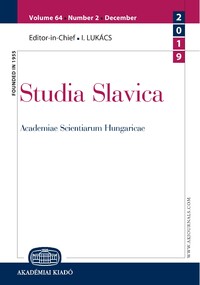Семантика абсолютивной конструкции в русском языке и антипассив
The Semantics of the Absolute Construction in Russian and Antipassive
Author(s): Nam Hye HyunSubject(s): Semantics
Published by: Akadémiai Kiadó
Keywords: objectless transitive construction; antipassive
Summary/Abstract: This work examines the absolute construction of transitive verbs in Russian in relation to the antipassive. Transitive verbs are defined as verbs that can be combined with a direct object, i.e. they exhibit patient valency. However, for various reasons, this patient valency is not always realized. Since the objectless use of the verb is the result of the syntactic inexpressibility of the patient argument, it is logical to approach it as the result of valency-reducing derivation. From this point of view, it can be assumed that the objectless transitive construction has certain diathetic properties. We postulate that the non-verbalization of patient valency signals the transfer of the patient argument to the semantic, communicative periphery and, consequently, to its syntactic demotion. Three types of non-verbalization of the patient argument are distinguished: context ellipsis, semantic incorporation of an object into the meaning of a verb, and generalized presentation of the situation. We are primarily interested in the third type, for which the term absolute construction is traditionally used. Unlike the first and second types, in which the unexpressed object is reconstructed through the context or semantics of the verb, in the absolute construction, the object of action cannot be specified, or it is difficult to do so. Therefore, an absolute construction is not an incomplete construction. The absolute use of transitive verbs is the result of reducing the valency of a communicatively irrelevant object, which generates certain semantic shift s; a verb does not denote an action directed at a concrete object but instead denotes something more stative, a constant property of the subject, which transfers the verb to other semantic classes and determines its use in certain contexts.
Journal: Studia Slavica Academiae Scientiarum Hungaricae
- Issue Year: 65/2020
- Issue No: 1
- Page Range: 149-163
- Page Count: 15
- Language: Russian
- Content File-PDF

